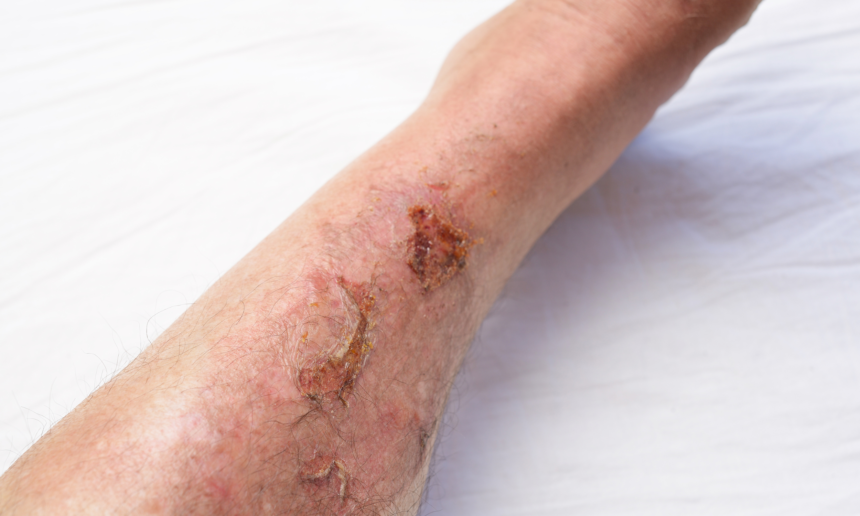Proper wound care is essential for preventing chronic wounds and promoting faster healing. Without the right care, wounds can become infected, delay healing, and lead to serious complications such as ulcers, infections, or even amputations. This guide outlines essential daily wound care tips to prevent wounds from becoming chronic and ensure optimal healing.
Step-by-Step Daily Wound Care Routine
1. Keep the Wound Clean
- Wash your hands thoroughly before and after touching the wound.
- Use mild soap and lukewarm water to gently clean the wound.
- Avoid harsh chemicals like hydrogen peroxide or alcohol, as they can damage healthy tissue.
2. Apply an Antiseptic or Antibiotic Ointment
- Use antiseptic solutions (like povidone-iodine or chlorhexidine) to prevent infections.
- Apply a thin layer of antibiotic ointment (e.g., Neosporin) to keep the wound moist and prevent bacterial growth.
3. Keep the Wound Moist and Covered
- Use moist wound dressings (hydrocolloid, foam, or silicone-based dressings) to promote healing.
- Change the dressing daily or whenever it becomes dirty or wet.
- Avoid exposing the wound to air for extended periods, as it can dry out and delay healing.
4. Monitor for Signs of Infection
Watch out for symptoms like:
- Increased redness, swelling, or pain around the wound.
- Pus, foul odor, or excessive drainage.
- Fever or chills, which may indicate a serious infection.
- If any of these occur, consult a healthcare provider immediately.
5. Maintain Proper Hygiene and Skin Care
- Keep the surrounding skin moisturized to prevent cracking and irritation.
- Avoid scratching or picking at scabs, as it can cause reinfection.
6. Optimize Nutrition for Faster Healing
- Consume a protein-rich diet (lean meats, fish, eggs, legumes) to support tissue repair.
- Increase intake of vitamins A, C, E, and zinc, essential for skin regeneration.
- Stay hydrated to keep the skin healthy and elastic.
7. Control Underlying Health Conditions
- If you have diabetes, monitor blood sugar levels to prevent slow-healing wounds.
- Manage high blood pressure and poor circulation to reduce the risk of ulcers.
8. Avoid Smoking and Alcohol Consumption
- Smoking reduces oxygen supply to tissues, delaying healing.
- Alcohol weakens the immune system, increasing the risk of infections.
9. Prevent Pressure Ulcers (Bedsores)
- Change positions frequently if you are bedridden or wheelchair-bound.
- Use pressure-relieving cushions or mattresses to reduce skin damage.
- Keep skin dry and apply protective barrier creams if needed.
10. Seek Medical Attention for Non-Healing Wounds
- If a wound does not show signs of healing within 4-6 weeks, it may be chronic.
- Consult a wound care specialist for advanced treatments like negative pressure therapy, skin grafts, or hyperbaric oxygen therapy.
Conclusion
Following a daily wound care routine is crucial for preventing infections, complications, and chronic wounds. By keeping wounds clean, moist, and properly dressed, along with maintaining a healthy lifestyle and managing underlying conditions, you can ensure optimal healing. If you notice signs of delayed healing, consult a healthcare provider immediately for professional care.
Adopting a proper wound care routine is key to preventing infections and complications. To learn more about how chronic wounds develop and how you can better manage them, check out our detailed posts on Common Causes of Chronic Wounds and How to Prevent Them.


Leave a Reply